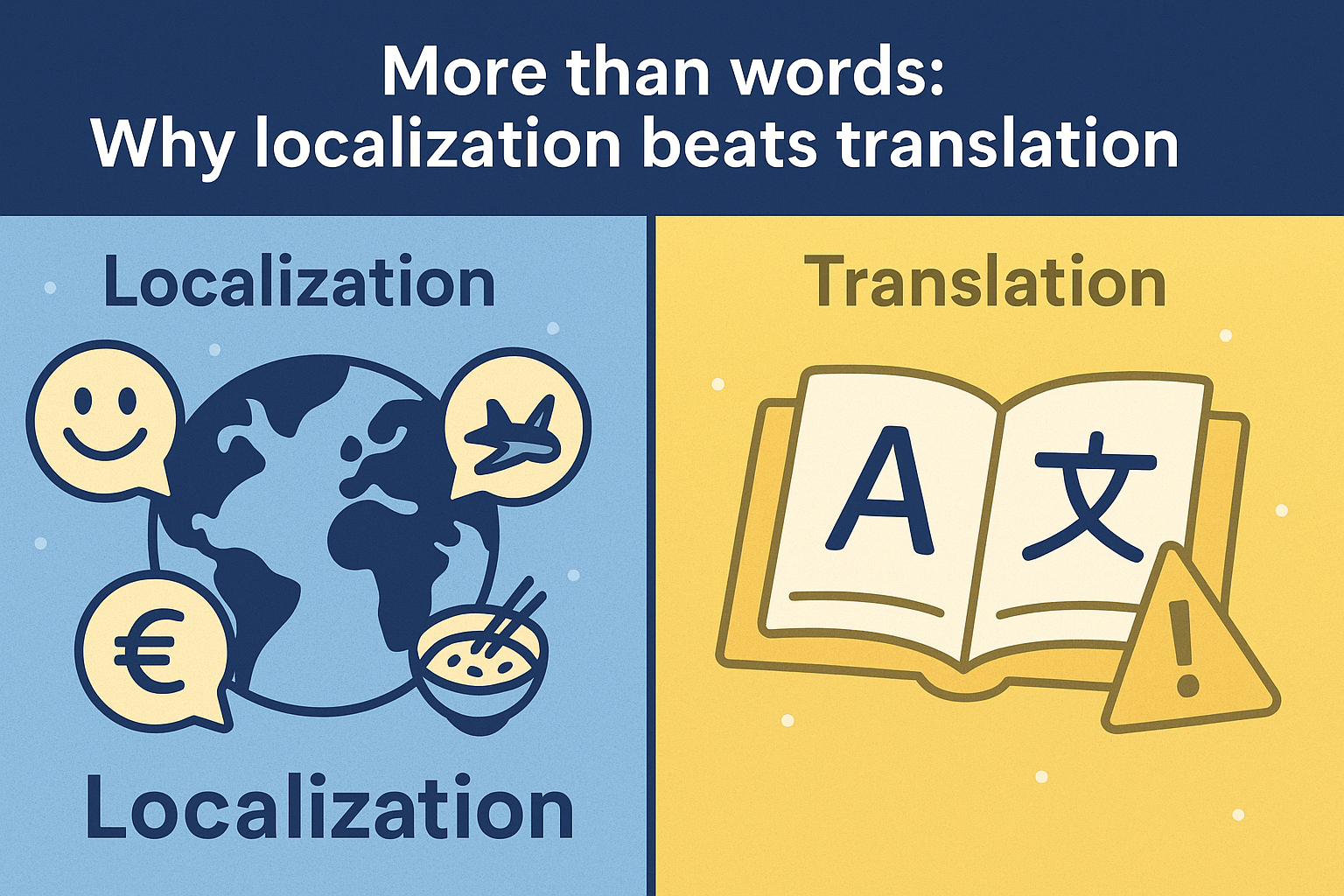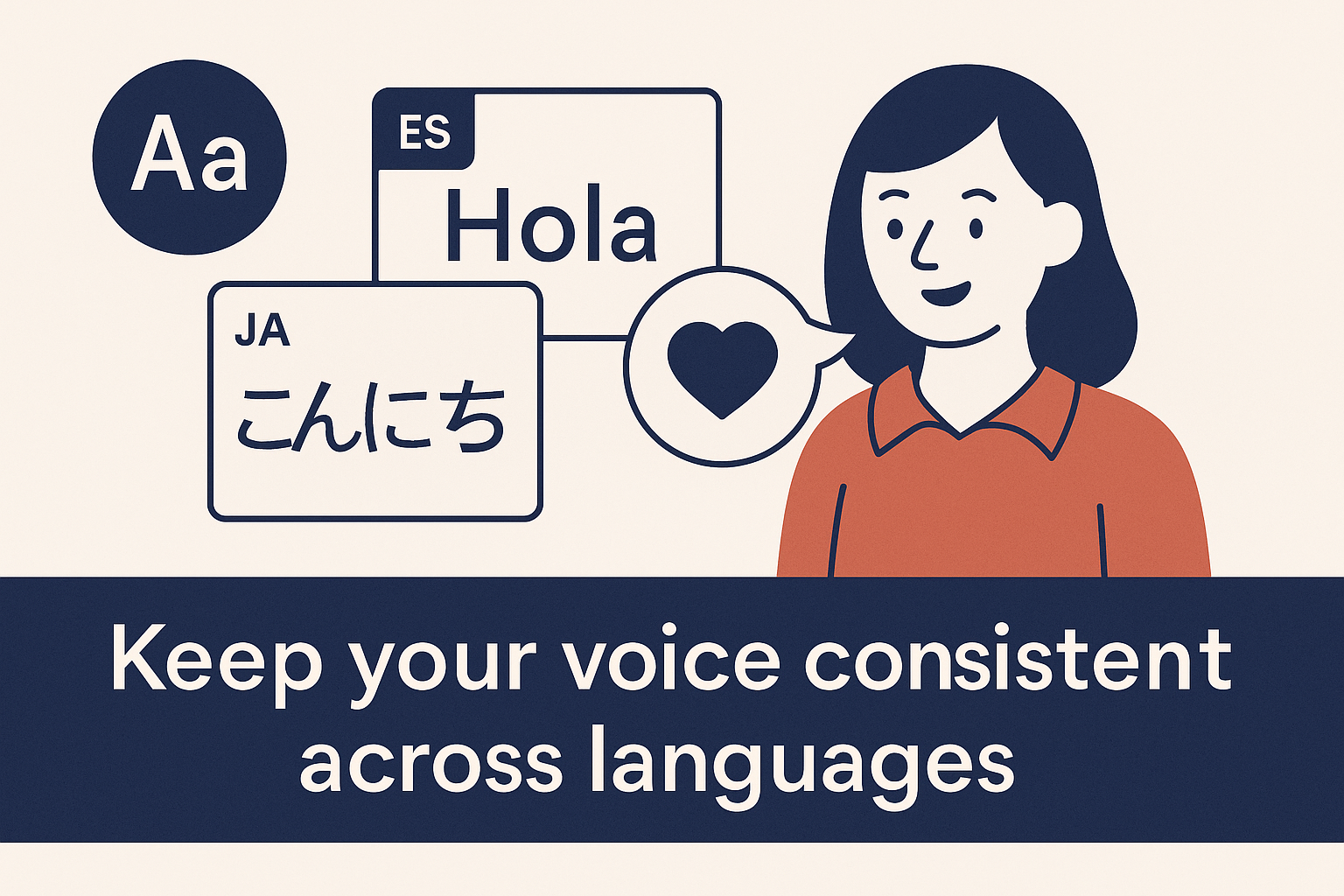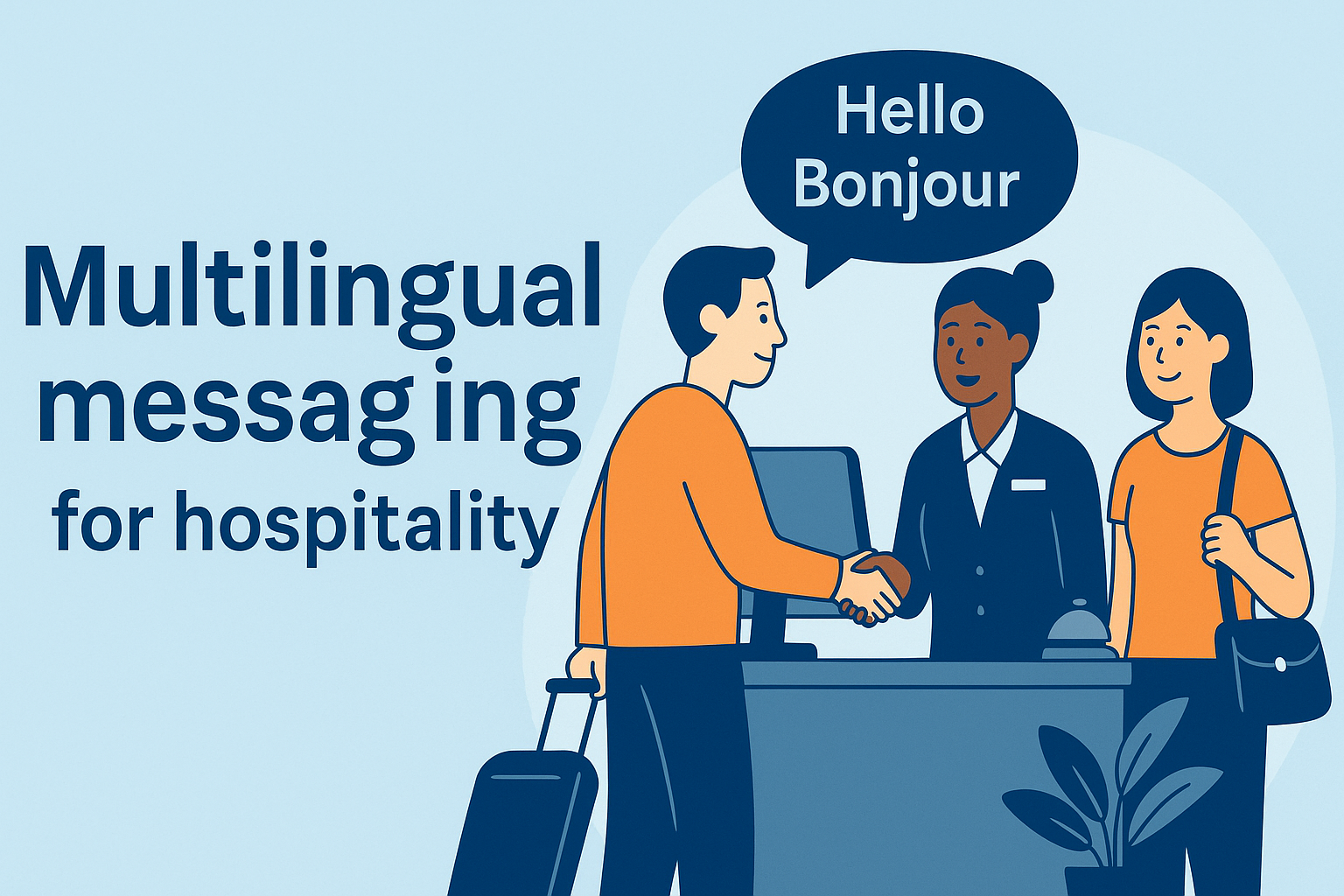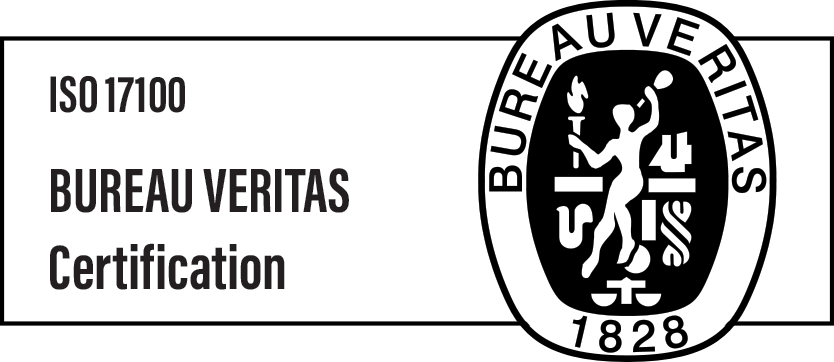Hospitality begins with feeling understood
In the hospitality industry, comfort isn’t just about pillows and service—it’s about communication. When a guest reads your website, your email, or your menu, they’re deciding whether they feel welcome. If the language feels off—or worse, missing—so is the connection.
That’s why multilingual messaging is no longer a luxury. It’s a must. And when it’s done well, it can turn browsers into bookers and guests into loyal fans.
1. More than words: Why localization beats translation
A direct translation might get the message across. But it won’t always land the right way.
Imagine a bold CTA like “Book now”—it might work in English, but in some cultures, it can feel too aggressive. A localized version might soften the tone or shift the structure entirely. The goal isn’t just to be understood—it’s to sound natural and inviting.
Localization also covers more than text. It includes images, colors, cultural references, and layout choices. In hospitality, where emotions drive decisions, these details matter.
✅ Tip: Partner with a language service provider (LSP) that adapts your tone—not just your text.

2. Make your website multilingual—and magnetic
Your website is your digital front desk. For international guests, it’s often their first impression—and their first decision point.
If it’s only in English, many visitors won’t even get that far. Studies show that most users prefer to book in their own language. And when content feels local, trust builds faster.
That’s why it’s critical to go beyond a translated homepage. Your booking engine, room descriptions, dining menus, FAQs, and confirmation emails should all speak directly to your guests—in their language, and with their expectations in mind.
✅ Reminder: Fluent, well-localized websites don’t just inform—they convert.

3. Local voices win inbox attention
Your email campaigns are a direct link to your guests—before, during, and after their stay. But if they aren’t localized, they’re often ignored.
A pre-arrival message that’s warm and welcoming in English may sound abrupt or impersonal in another language if directly translated. Similarly, a special offer that feels exciting in one market might fall flat in another without the right cultural cues.
That’s where multilingual copywriting makes a difference. It ensures your tone matches your brand—and your guests’ expectations.
✅ Pro tip: Localize not just the text, but the emotional tone of your emails.

4. Speak their language on social media—or get scrolled past
Social platforms are fast, visual, and deeply local. A one-size-fits-all approach won’t stop thumbs from scrolling.
If your captions or hashtags are only in English, you’re missing a huge part of your audience. Multilingual posts connect with local users, spark conversations, and boost engagement—especially when they reference local culture, events, or humor.
Even a simple caption tweak can make a global brand feel instantly relatable.
✅ Insight: Multilingual captions don’t just inform—they build community.

5. Keep your voice consistent across languages
As your content spreads across markets, your brand voice can start to drift—unless you manage it carefully.
Guests notice when one version of your website feels polished and another sounds robotic. Inconsistent tone, awkward phrasing, or sloppy translations create confusion—and erode trust.
That’s why professional linguistic review matters. It ensures your tone, terminology, and messaging stay on-brand in every language. Especially when multiple writers, agencies, or platforms are involved.
✅ Reminder: Strong brands sound confident—and consistent—wherever they’re read.

Speak like a host, not just a business
Hospitality is human. It’s about making people feel welcome, seen, and cared for. And that starts with language.
Multilingual messaging isn’t just about accuracy—it’s about experience. When your website, emails, and content sound like they were written just for your guest, they feel at home before they ever arrive.
Partner with an LSP that understands more than just grammar. Look for one that understands tone, culture, and the guest mindset. Because when your brand speaks fluently, your business grows naturally.


